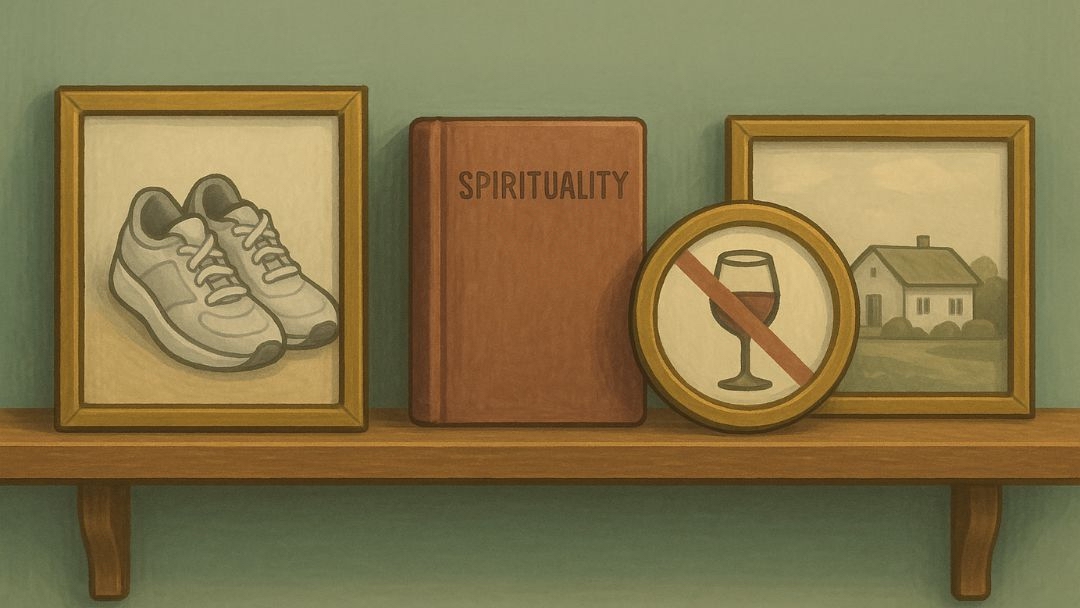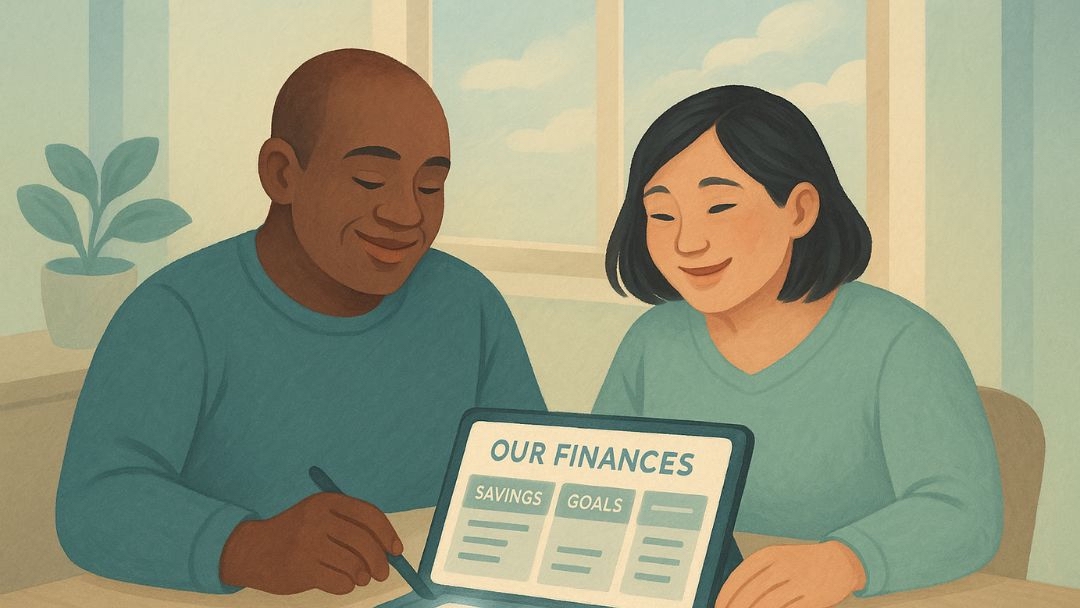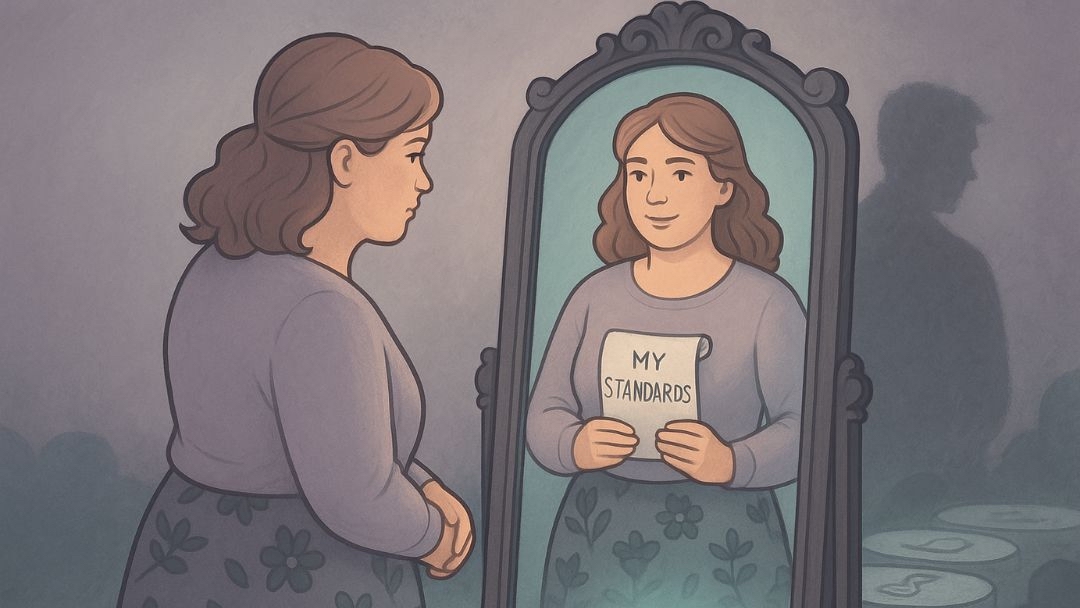What Are Your Non-Negotiables in a Relationship? 12 Standards to Help You Stop Settling for Less
What things should you never compromise on in love? Relationship non negotiables are the boundaries and values that form the foundation of a healthy, successful partnership. This article helps you define your own—and communicate them clearly—so you're not settling for less than you need.


Back
10 mins read
Fitness is something I hold dear, and it's not something I'm ever willing to compromise on—no matter what. I always say I could never be with someone who doesn’t support me going to the gym. Another deal breaker for me? Cheating. I won’t put myself through the chaos and pain that come with betrayal.
These are my serious relationship non-negotiables—the boundaries I’ve set to protect my peace and emotional well-being.
And I’m not the only one. Most of us have at least a few deal breakers we know we couldn’t overlook in a relationship—even if we’ve never put them into words. Maybe you’ve said something like...
- “If you ever cheat on me, I’m gone.”
- “I can forgive a lot—but not lies.”
- “If I find out you’ve been hiding something big, that’s it.”
- “Disrespect me once, and I’m out.”
- “If I’m not a priority, I’m not staying.”
If so, you already have hard limits—those relationship "nopes" you’re not willing to budge on.
But what exactly are relationship non-negotiables, and how do you set them in a healthy way? Whether you’re starting fresh, healing from something that didn’t work, having concerns about a current relationship, or simply getting clearer about what you need, this article will help you define your own boundaries—and understand why they matter.
You May Also Like: Understand the 5 Love Languages for a Happy Relationship
Non-Negotiables in a Relationship: Defining Your No-Gos and Must-Haves
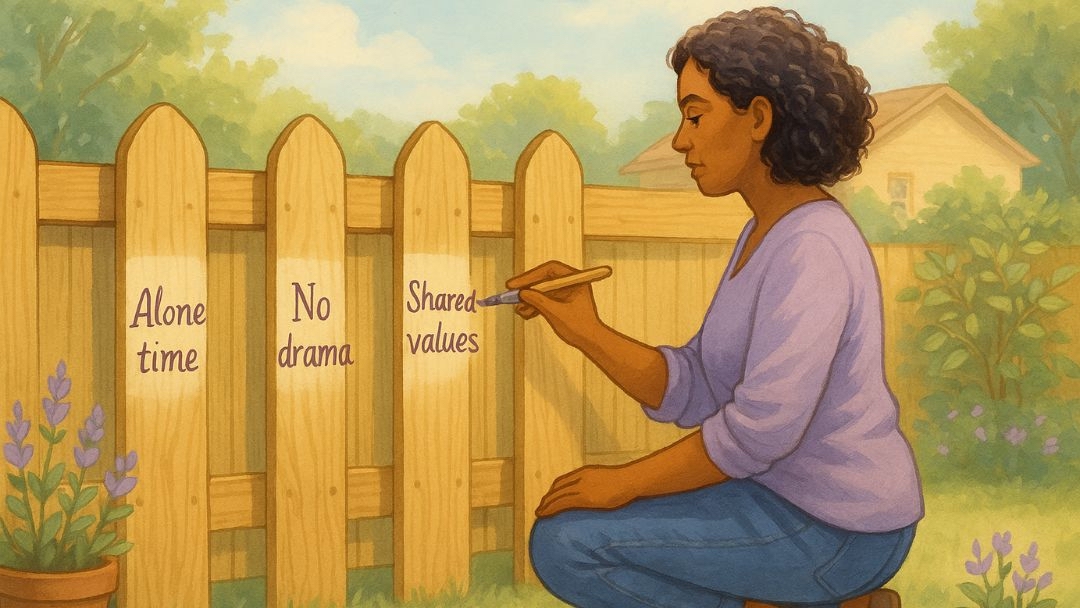
We all have limits in love—lines we just won’t cross. But have you ever said yours out loud? What are your personal deal breakers in a relationship?
Relationship non-negotiables are the values and boundaries that protect your emotional and physical health. They include both no-gos (what you absolutely won’t tolerate) and must-haves (what you deeply need in order to feel secure, respected, and fulfilled). Think of them as permanent marker lines—not something you erase when things get complicated.
These boundaries show up in all areas of life: your career, daily routines, own interests, and especially your closest relationships. In romantic partnerships, non-negotiables are about more than just preferences—they’re what keep you from losing yourself in the name of love.
Some are universal, like physical safety or honesty. Others are personal, like needing alone time, wanting children, or avoiding debt. There’s no “right” list—what's important is getting clear on what truly matters to you.
Universal vs. Personal Non-Negotiables: Where’s the Line?
Some non-negotiables are just common sense. Respect, safety, and trust aren’t optional—they’re the foundation of any healthy relationship. These are universal boundaries no one should feel pressured to overlook.
But others are more personal—and that’s not only okay, it’s important. Maybe you need someone who shares your political views. Maybe you’re not okay with drinking. Maybe quiet weekends at home matter more than big social gatherings.
Whatever your personal non-negotiables are, they’re valid, and you don't have to settle or compromise on them.
12 Non-Negotiables Every Healthy Relationship Needs
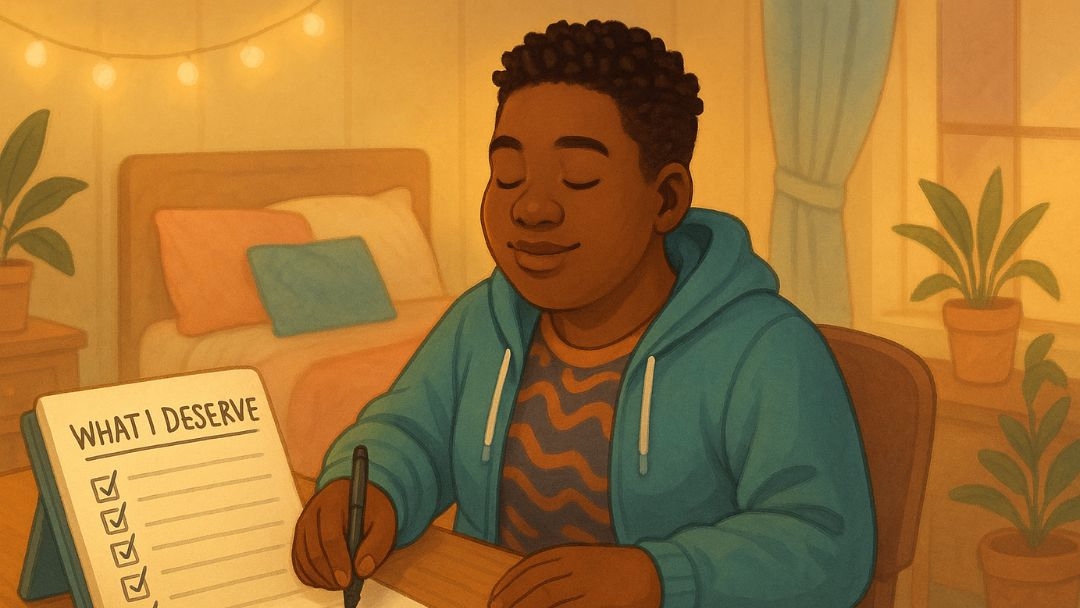
Not all boundaries are up for debate. Some expectations are so essential that without them, a relationship simply can’t thrive.
The list below outlines core values and deal-breakers that every successful relationship depends on. These are the things we all deserve and should never feel guilty for requiring.
We’ve ordered them by foundational importance, but your personal ranking might shift based on your own values, life experience, and what you’ve learned not to compromise on.
1. Zero Tolerance for Physical Violence—Your Safety Comes First
It might seem obvious, but it still needs to be said: physical safety is non-negotiable. If someone threatens, hits, restrains, or intimidates you in any way, that’s not love—it’s abuse. Even early red flags like breaking things, blocking your exit during an argument, or getting in your face when angry shouldn’t be ignored.
Sexual consent is a part of this, too. You should never feel pressured, coerced, or guilted into intimacy you don’t want. Your body, your pace, your choice—every single time.
You deserve to feel safe in your own body and your own home. If you're experiencing or witnessing signs of physical violence or sexual boundary violations, please don’t wait. Talk to someone you trust or reach out for professional help—your safety comes first, and help is available.
2. No Excuses for Emotional Abuse—Respect Must Be Mutual
Physical harm isn’t the only kind of danger in a relationship. Emotional abuse can be just as damaging—and often harder to spot. If your partner constantly puts you down, gaslights you, ignores your feelings, or uses guilt and fear to control you, those are signs of abusive behavior, not emotional intimacy.
A safe space means feeling respected when you're vulnerable—not walking on eggshells or second-guessing your worth. Emotional safety is the foundation on which everything else rests on.
3. Substance Use Shouldn’t Create Chaos—Know Your Boundaries Around Addiction
In the early stages of dating, it’s common to grab a drink or unwind together—and for many couples, moderate alcohol or legal cannabis use isn’t an issue at all. What matters is how it affects the relationship.
Substance abuse—when use becomes excessive, secretive, unsafe, or untreated—can erode even the strongest connection. Broken promises, emotional neglect, and unpredictable behavior aren’t quirks; they’re serious concerns.
You don’t need to justify stepping away from instability, especially if the other person isn’t actively working toward change. For some, any use may be a personal deal breaker—and that’s okay too. Whether your boundary is sobriety or just stability, honoring it protects your peace and future.
4. Trust and Honesty Aren’t Optional—No Lies, No Games
Trust is one of the things I hold most dear. Whether it’s a partner, friend, or family member, I need to be surrounded by people who mean what they say and follow through. Without trust and honesty, a long-lasting relationship can’t exist—it’s the glue that holds everything else together.
Lies—big or small—chip away at connection and create emotional distance. Even uncomfortable truths are better than secrets and half-answers. If someone constantly hides things or makes you question what’s real, that’s a serious issue, not something to brush off.
5. Respect Is a Requirement—Not a Perk of Good Behavior
There can’t be a real relationship without respect. Can you imagine being with someone who constantly belittles, dismisses, or ignores you? A healthy partner values your voice as much as their own. They don’t interrupt, mock your opinions, or push past your boundaries.
Mutual respect doesn’t mean agreeing on everything—it means finding common ground while still honoring each other’s differences. The absence of that? It’s a big red flag.
6. Clear, Direct, and Open Communication Is a Must
We all want to feel heard and understood in our relationships. That’s why effective communication—honest, direct, and respectful—is one of the most crucial non-negotiables.
You deserve someone who’s willing to talk things through, not play mind games or rely on passive aggression. Silence, guessing, or stonewalling shouldn’t be part of your dynamic. The way you handle everyday conversations—and especially resolving conflicts—sets the tone for the relationship as a whole.
7. Emotionally Unavailable? That’s a Hard Pass
Emotional availability is a non-negotiable in any healthy relationship, especially romantic ones. A partner who’s present, responsive, and emotionally open helps you feel seen, secure, and valued. In contrast, dealing with someone emotionally distant (like a dismissive avoidant) can leave you constantly chasing connection or begging for closeness.
Emotional support isn't optional—it’s part of what makes love feel safe. Vulnerability is not a weakness; it’s the glue that holds relationships together. If your partner regularly shuts down, stonewalls, or acts “too cool to care,” those aren't quirks—they're signs of emotional unavailability and, in some cases, emotional abuse.
8. Loyalty Means Showing Up—Not Keeping Backups
For some people, loyalty sits right at the top of their list of deal-breakers—and for good reason. Few things cut deeper than feeling like a second option to the person you love. Loyalty means knowing your partner is all in—not halfway out or entertaining backup plans.
It’s not just about cheating. Loyalty shows up in how your partner talks about you to others, how they handle conflict around family or friends, and whether they’ve got your back when it counts. While some couples might be able to work through a single mistake, repeated behavior—like flirting, keeping exes too close, or dodging commitment—should be a hard stop.
If betrayal has happened but both partners are willing to rebuild trust, working with a marriage counselor or relationship coach can sometimes help. But if someone constantly makes you question where you stand, that’s a boundary being crossed.
9. Shared Core Values Matter More Than Chemistry
We love to believe that love conquers all, but it can’t fix a deep mismatch in core values. Differences in religious beliefs, political beliefs, lifestyle choices, or views on things like marriage and family can create long-term friction, even if the connection feels strong at first.
Having shared values doesn’t mean you have to love all the same things. It means you’re heading in the same direction and making life decisions from a similar place. These beliefs shape how you spend money, raise kids, handle conflict, and define success—so it’s important to talk about them early and make sure you're aligned where it counts.
10. Financial Transparency or Nothing—Secrets Break Trust
Money can be a sensitive topic, but it can't be avoided. If you’re building a future with someone, you need to get real about spending habits, saving styles, and long-term financial goals. Avoiding these conversations only increases the chance of conflict later.
Secrets around money can lead to resentment and mistrust. Imagine finding out—once you're deeply invested—that your partner has significant debt or completely different financial priorities.
Financial transparency is a form of respect and partnership. Talk openly about existing debt, financial planning, spending habits, and expectations—whether that means joint accounts, separate budgets, or something in between.
11. Support My Personal Growth or Step Aside
A healthy partner celebrates your success instead of feeling threatened by it. Whether it’s your career, your healing journey, or personal goals, they should cheer you on—not guilt-trip you for wanting more.
Real love doesn’t shrink you—it expands you. You deserve someone who encourages your growth, not someone who discourages your ambition or questions your need to evolve. The best relationships feel like a team effort—where your partner is not just your love, but also your best friend and biggest supporter.
12. Family Dynamics Need Healthy Boundaries—No Exceptions
They say when you marry someone, you marry their family too—and for many people, that’s not far off. Family dynamics can have a huge impact on your relationship, especially if there are blurred boundaries, cultural expectations, or pressure to play a certain role.
For some, family involvement is a non-negotiable—whether that means spending holidays together or helping care for aging parents. For others, too much interference from the other’s family can quickly become a dealbreaker. There’s no one-size-fits-all approach here. What matters is that you and your partner communicate your boundaries clearly and find a way to honor each other’s comfort zones.
This ties back to shared core values, mutual respect, and even emotional safety—because how your partner handles family tension (or avoids it) says a lot about their priorities.
Defining Your Relationship Non-Negotiables List: What Matters Most to You?
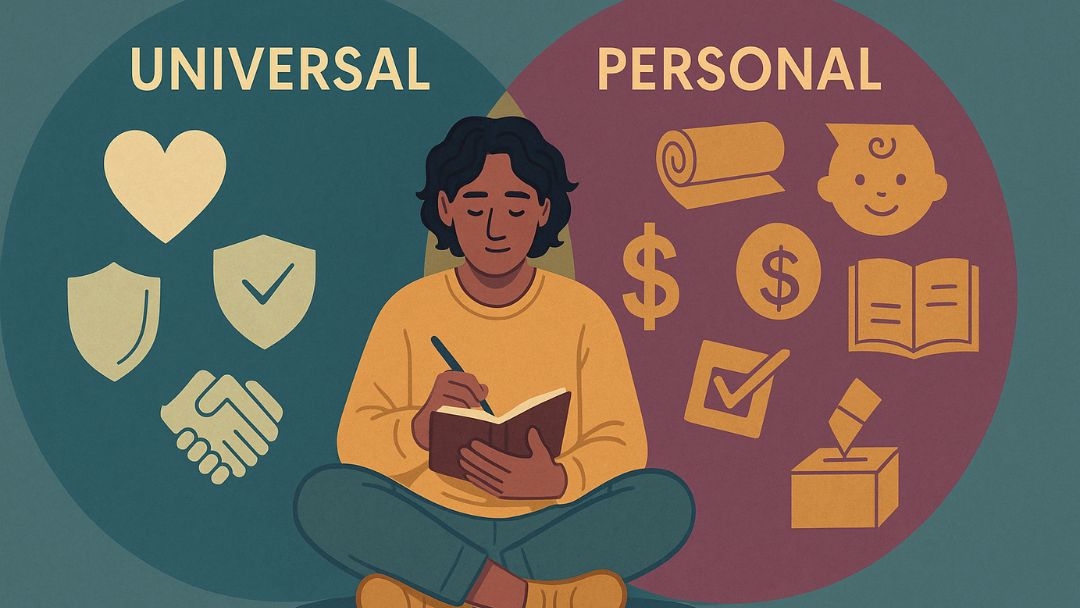
Not every non-negotiable applies the same way to every person. Once you’ve locked in the universal boundaries that create safety and trust, it’s time to ask: What things are most important in a relationship for me? What REALLY matters?
Your individual "no-gos and must-haves" are shaped by your values, lifestyle, and lived experience. What one person sees as essential, another might view as flexible. That’s the power of identifying non-negotiables—you get to define your own.
To create your non negotiable list, ask yourself:
- Do I need a partner who shares my religious or spiritual beliefs?
- How important are political views in terms of compatibility?
- How important is sexual compatibility to me—and how do I feel about timing when it comes to physical intimacy?
- What kind of financial goals do I have, and do I need someone who aligns with them?
- How much time do I want to spend together, and how much personal space do I need?
- Do I want us to share hobbies or simply support the things my partner loves, even if I don’t?
- Is physical appearance something I value as part of long-term attraction?
- How do I feel about staying in touch with exes or discussing previous relationships?
- Are there lifestyle habits (diet, travel, sleep) that feel non-negotiable to me?
- Do we need common ground on routine, ambition, or future plans?
- Do I want my partner to also be my best friend?
- How much emotional depth do I need? Do I feel supported when it comes to mental health?
These aren’t picky questions—they’re how you clarify the most important things that help you feel secure, respected, and fully yourself.
Reflecting on past relationships can help you spot patterns: What drained you? What made you feel safe, supported, or unseen? The lessons you take from those experiences can shape a stronger, more confident version of yourself. Once you’ve defined your personal boundaries, talk about them early. The goal isn’t to be rigid—it’s to be real.
You’ll compromise on some things. Others, you won’t—and that’s exactly how it should be.
Want a fun perspective on compatibility? Check out the Olive Theory!
Why Identifying Your Relationship Deal Breakers Matters

Taking the time to define your non-negotiables isn’t just a relationship checklist—it’s a tool for self-respect and emotional clarity. When you know your boundaries, you’re less likely to waste time, second-guess yourself, or stay in situations that don’t align with your values.
It’s not about being picky—it’s about protecting your peace, communicating honestly, and building connections that actually work for you. Here’s why defining your non-negotiables makes such a difference:
They Protect Your Emotional Health
Non-negotiables act like boundaries that keep you from constantly pouring into a relationship that drains you. They help you avoid the emotional confusion that comes from trying to change who you are just to keep someone else happy. When you know your limits, you're less likely to lose yourself in the process of loving someone else.
They Help You Avoid Wasting Time
When you know what you're unwilling to compromise on, you can spot misalignment early. Instead of trying to “fix” someone or hoping they’ll eventually change, you can walk away with clarity—and save yourself from months (or years) of emotional tug-of-war.
They Build Relationship Clarity
A clear set of boundaries creates clarity not just for you, but for your partner too. Your non-negotiables communicate what matters most and open the door to honest conversations about compatibility. That kind of openness helps reduce misunderstandings and unmet expectations before they grow into resentment.
They Strengthen Self-Respect
Every time you stand by your non-negotiables, you reinforce your self-respect. You’re telling yourself—and others—that your needs are valid, your fundamental values are real, and love shouldn’t come at the cost of your identity.
They Lay the Foundation for a Healthier Relationship
When both people are clear about what truly matters, mutual understanding, mutual support, emotional safety, and long-term trust are far more likely to grow. This kind of alignment doesn’t just feel good—it creates a strong, stable foundation that’s far less likely to crack under pressure.
Don’t Settle—You Deserve a Relationship That Honors Who You Are

It’s easy to overlook big questions when everything feels perfect in the honeymoon phase. But real compatibility isn’t just about chemistry—it’s about shared values, communication, and how your personalities fit over time.
Defining your non-negotiables helps you move beyond surface-level attraction and get clear on what actually matters. It keeps you grounded when things get complicated and ensures that you and your partner are truly on the same page.
Relationships take work, but they shouldn’t cost you your peace. Know your lines. Speak them early. And choose people who respect them.
You don't have to settle for less!


Return to Blog
